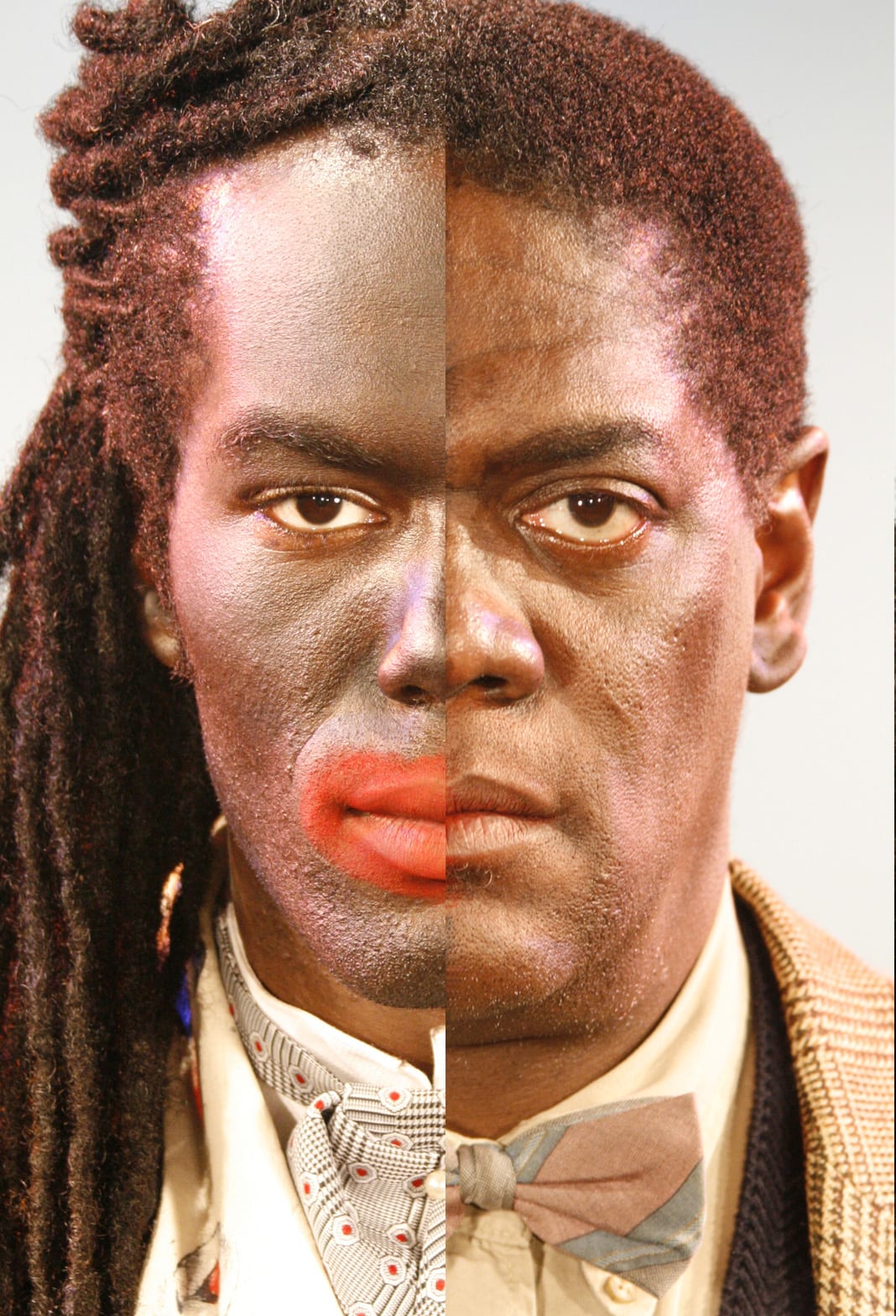Last week, NewSouth Press announced its edition of The Adventures of Huckleberry Finn, designed for schools, in which the “n word” is somewhat incongruously replaced by the word “slave.” Such misguided revisionism makes it abundantly clear that we need some open and frank discussions in this country about how we are to talk with one another about our history of racism. If you’re still reeling from the Huck Finn decision, Company One has your antidote: “Neighbors,” by Brandon Jacob-Jenkins.
This surrealistic drama not only confronts the audience with the “n word,” asking who has the right to say it and in what context, it also revives the most grotesque stage caricatures of African Americans from the annuals of our history, putting them loudly before audiences in quarters close enough to smell the grease paint. Pitting an upwardly mobile adjunct theater professor against a troupe of minstrel performers, and a young member of this troupe against the elders that force him to maintain the tradition, “Neighbors” goes so far as to ask whether any performance by African Americans for white Americans can be wholly divorced from the minstrel tradition.
Like most adjuncts, Richard Patterson (Johnny Lee Davenport) is obsessed with winning approval and tenure from his academic community. Richard faces the added pressure of being an African American in the predominately white field of Western Philosophy and his chronic “hypertension” is exacerbated when he is tapped to teach a theater class in Greek tragedy. Meanwhile, his wife Jean (Christine Power), a white, poetry MFA-turned-bored housewife, languishes in isolation, while their daughter Melody (Lori Tishfield) blossoms at the zenith of her rebellious teenage angst.
A flame approaches their collective fuse when the Crow family moves in next door. The Crows, Zip Coon (Equiano Mosieri), Mammy (Valerie Stevens), Topsy (Japonica Brown), Sambo (Jesse Tolbert) and Jim (Tory Bullock), are the traveling performers of “Coonapalooza.” They never appear without blackface smeared over their natural African skin tones, red makeup ensconcing their lips and full vaudeville attire. Drawling, whooping, shucking and jiving, they unyieldingly inhabit their personas. Their presence on stage is electrifyingly unsettling.
And as they unsettle the audience, they unhinge the Pattersons. While Richard’s inevitable breakdown is broadcast loudly by Davenport, who plays the character at a relentless fever pitch, two relationships emerge that keep this drama from being a parade of symbols only. Zip, the enigmatic patriarch of the Crows, seeing that he is being shunned by Richard, insinuates himself into a friendship with Jean and subtly prods her into questioning every assumption she has come to rest with about her identity as the white wife of a black husband.
At the same time, Melody entangles herself with Jim, the youngest of the minstrel show performers. Staring into one another’s eyes, they both glimpse freedom and rebellion. Melody feels the pull of the stage, Jim a pull from the opposite pole of comfortable normalcy.
It’s Jim’s wish that exerts the most sympathy from an audience witnessing a spectacle it knows it is not supposed to see. The incredibly brave and talented cast of “Neighbors” keeps you uncertain of whether you’re expected to laugh or cringe, engage or retreat, and sends you off wondering why you reacted in whatever, inevitably complex ways you did.
Directed by Summer Williams, “Neighbors” plays at the Plaza Theater at the Boston Center for the Arts through February 5.


Leave a Reply